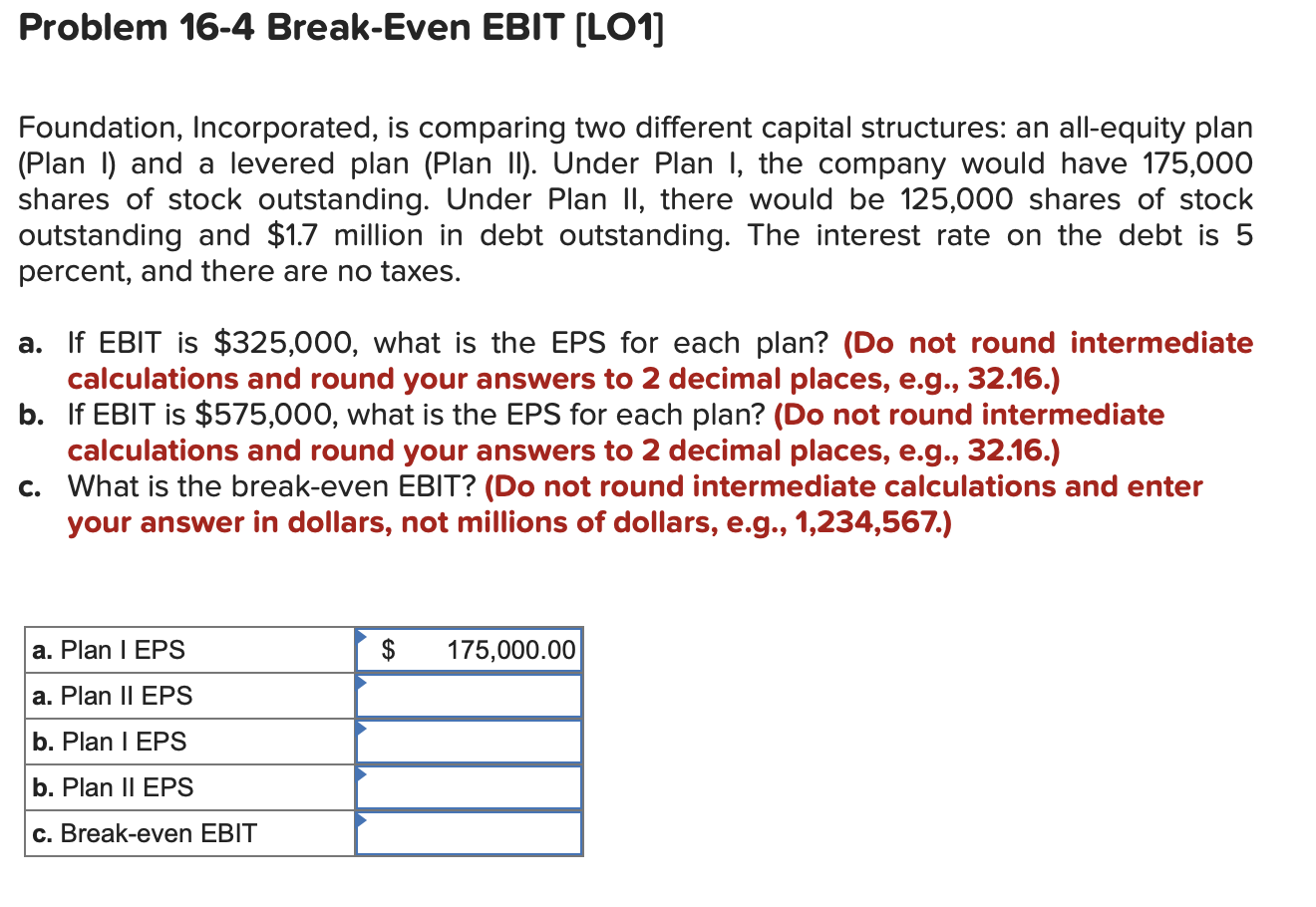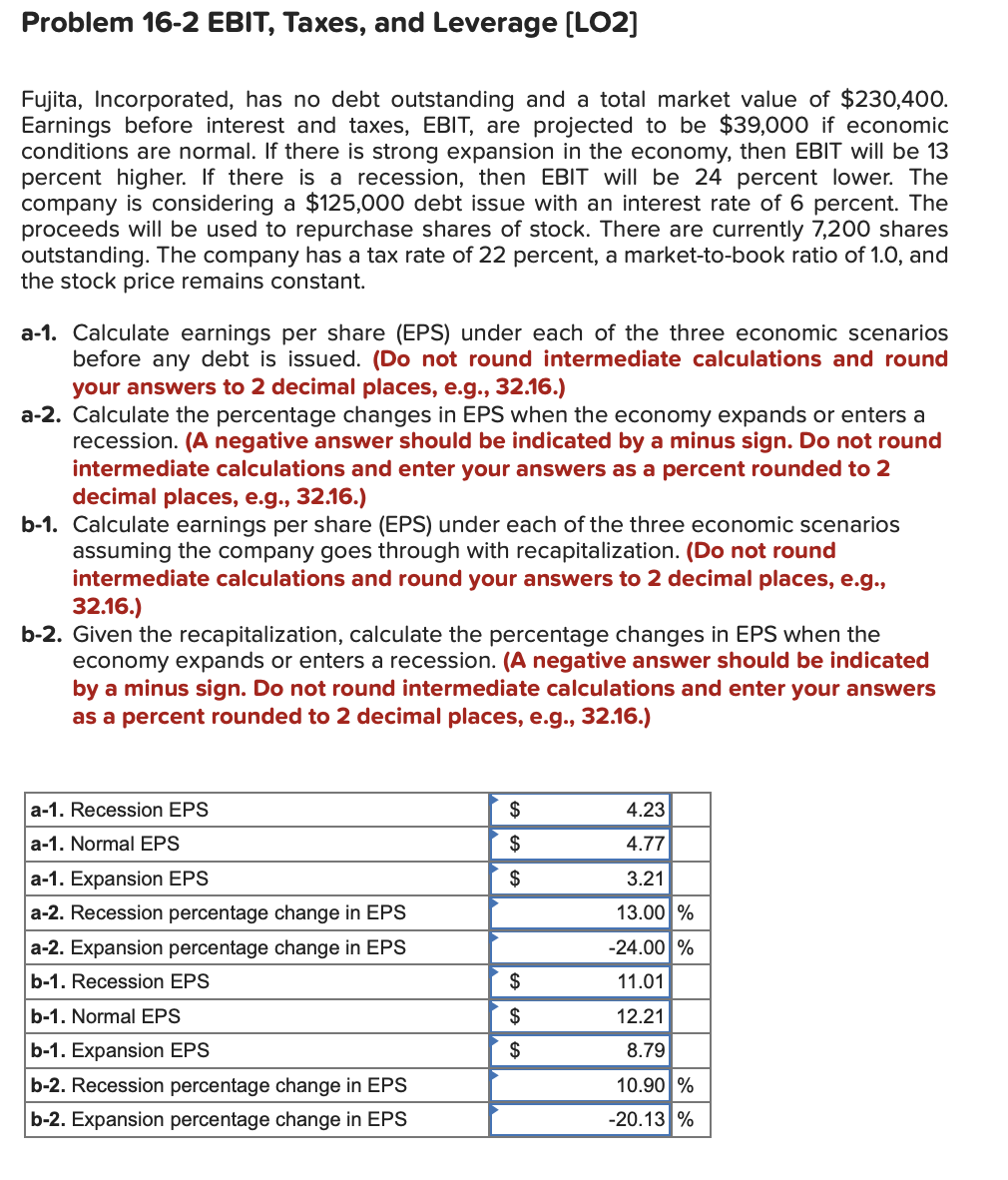

Foundation, Incorporated, is comparing two different capital structures: an all-equity plan (Plan I) and a levered plan (Plan II). Under Plan I, the company would have 175,000 shares of stock outstanding. Under Plan II, there would be 125,000 shares of stock outstanding and $1.7 million in debt outstanding. The interest rate on the debt is 5 percent, and there are no taxes. a. If EBIT is $325,000, what is the EPS for each plan? (Do not round intermediate calculations and round your answers to 2 decimal places, e.g., 32.16.) b. If EBIT is $575,000, what is the EPS for each plan? (Do not round intermediate calculations and round your answers to 2 decimal places, e.g., 32.16.) c. What is the break-even EBIT? (Do not round intermediate calculations and enter your answer in dollars, not millions of dollars, e.g., 1,234,567.) Fujita, Incorporated, has no debt outstanding and a total market value of $230,400. Earnings before interest and taxes, EBIT, are projected to be $39,000 if economic conditions are normal. If there is strong expansion in the economy, then EBIT will be 13 percent higher. If there is a recession, then EBIT will be 24 percent lower. The company is considering a $125,000 debt issue with an interest rate of 6 percent. The proceeds will be used to repurchase shares of stock. There are currently 7,200 shares outstanding. The company has a tax rate of 22 percent, a market-to-book ratio of 1.0, and the stock price remains constant. a-1. Calculate earnings per share (EPS) under each of the three economic scenarios before any debt is issued. (Do not round intermediate calculations and round your answers to 2 decimal places, e.g., 32.16.) a-2. Calculate the percentage changes in EPS when the economy expands or enters a recession. (A negative answer should be indicated by a minus sign. Do not round intermediate calculations and enter your answers as a percent rounded to 2 decimal places, e.g., 32.16.) b-1. Calculate earnings per share (EPS) under each of the three economic scenarios assuming the company goes through with recapitalization. (Do not round intermediate calculations and round your answers to 2 decimal places, e.g., 32.16.) b-2. Given the recapitalization, calculate the percentage changes in EPS when the economy expands or enters a recession. (A negative answer should be indicated by a minus sign. Do not round intermediate calculations and enter your answers as a percent rounded to 2 decimal places, e.g., 32.16.)








